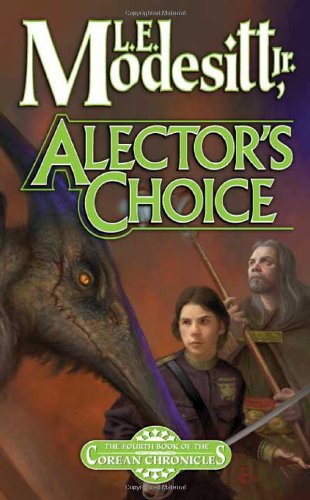
Alector's Choice PDF
Preview Alector's Choice
While not quite up to the Spellsong saga or the best of the Recluce novels, Modesitt's complex fourth entry in his Corean series (after 2004's Scepters) contains plenty of fine world building and intelligently developed magic. With the life force of the planet Ifryn almost exhausted, its population is about to migrate to Corus, where the eight-foot Alectors, a superior race with psychic powers, are overseeing the biological preparation of this new world. Unfortunately, the migration will reduce the status of the powerful Alectors, while the Corus natives, known as indigens, will move so far down the social ladder as to be barely visible. The many subplots tend to slow the pace, but Modesitt fans, knowing what they're in for, will find reaching the end of this challenging fantasy well worth the effort. Newcomers would do best to start with Legacies (2002), the first of the Corean chronicles. (June 8)
Copyright © Reed Business Information, a division of Reed Elsevier Inc. All rights reserved.
Instead of resuming the adventures of Alcius, the fourth volume of the Corean Chronicles adopts the points of view of Dainyl, an Alector, and Mykel, one of his talented (and Talented--i.e., psychic) company captains. As previous chronicles (_Legacies_, 2002; Darknesses, 2003; Scepters, 2004) have imparted, Corus has been developed as a future home for aliens who live by draining one planet's biological life force before moving to another. The development is supervised by Alectors, bigger, stronger, technologically superior to the natives, and all possessed of Talent, which most natives lack. The aliens' transfer to Corus is imminent, but the highest-ranked Alectors are intriguing among themselves, making use of the natives' political and economic aspirations. Dainyl, a just-promoted Alector, is supposed to straighten out a revolt among the steers, as the natives are derisively called. He discovers that higher-up Alectors instigated it, and the rarely seen aboriginal inhabitants of the planet, the Soarers, have gotten involved. Readers of its predecessors may most relish this book, which does, however, stand on its own. Frieda Murray
Copyright © American Library Association. All rights reserved
